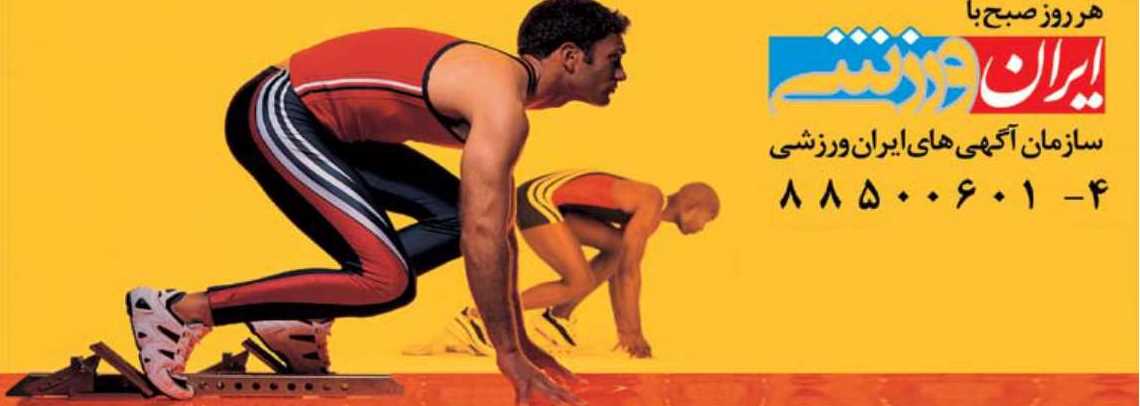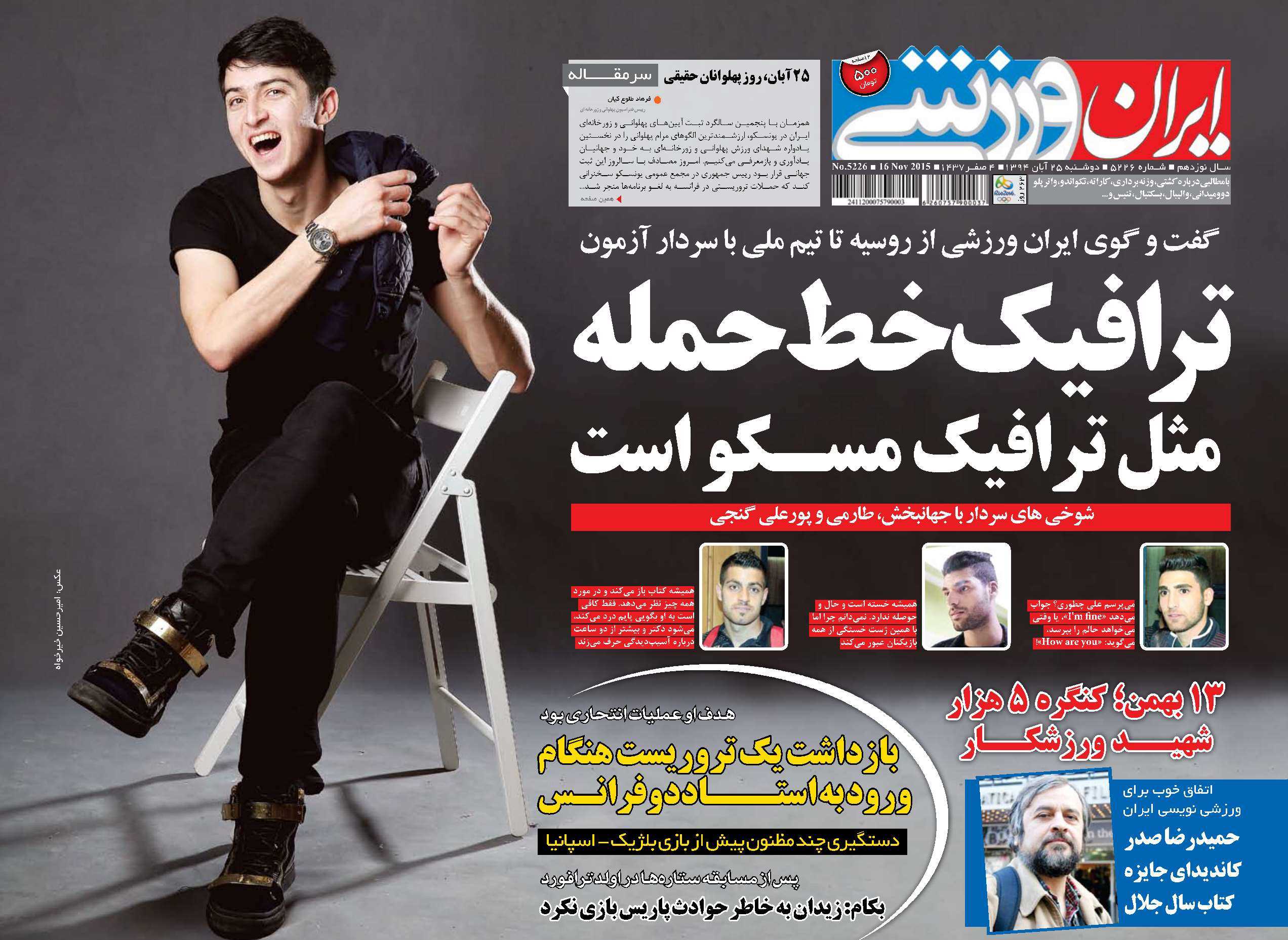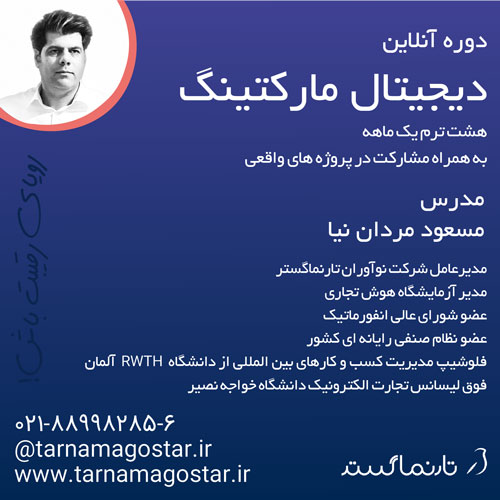عناوین این صفحه
جستجو بر اساس تاریخ
نظرسنجی
شماره : 6926 /
۱۴۰۰ پنج شنبه ۲۵ آذر
|
|
کارهای مهمتر استقلال بعد از پیروزی بزرگ
سرمقاله
فرشاد کاسنژاد @Farshadcasnejad
استقلال نه فقط بابت صدرنشینی موقت و ۲۴ ساعته، بلکه از پیروزی مقابل سپاهان میتواند خوشحالترین تیم لیگ برتر باشد. به این دلیل که خود را در معرض مهمترین آزمون لیگ قرار داد و موفق بود. دربی بزرگترین بازی برای استقلال نبود، نه کیفیتی داشت که ملاک سنجش باشد و نه گردش بازی به گونهای بود که استقلال را به دستاوردهایی برای ارزیابی خود برساند اما پیروزی مقابل سپاهان برای استقلال همه چیز داشت تا بداند در رقابت برای قهرمانی کجا ایستاده است.
بازی با سپاهان برای استقلال تمام نشده است. استقلال اگر خیال قهرمانی دارد، رقابتی را تا پایان فصل و هر هفته با سپاهان و چند رقیب دیگر تجربه خواهد کرد. سپاهان کیفیتی از فوتبال را مقابل استقلال به نمایش گذاشت که اگرچه منجر به شکستش شد اما حتماً به پیروزیهای پرشمار در آینده منجر میشود و میتواند برای استقلال در مسیر قهرمانی یک تهدید بزرگ باشد. سپاهان باخت اما به استقلال هشدار داد که باید تیم بهتری باشد تا در کورس قهرمانی از همین سپاهان جا نماند.
استقلال همچنان به تولید ایده و ساخت بازی نیاز دارد. این را در بازی با سپاهان بیشتر میتوان فهمید. سپاهان در این زمینه بیش از استقلال کار کرده است. استقلال با گابریله پین باید تا امروز به بازی جذابتر و پررونقتری میرسید. این انتقاد به دستیار ایتالیایی فرهاد مجیدی وارد است که ردپایش در تیم پیدا نیست. شاید استحکامی که در دفاع استقلال میبینیم از پین اثر گرفته باشد و این تحسینبرانگیز است که استقلال گل خوردن در تهران و باختن را فراموش کرده است اما برای اینکه پین را به عنوان یک دستیار مؤلف در استقلال بپذیریم، این کافی نیست. شایعه اختلافات و این دست حرفها به کار ادمینها میآید و دور از این فضا، باید دید پین چه آثاری برای استقلال دارد.
استقلال خط دفاعی دارد که با یزدانی مطمئن، با دانشگر جسور و با مرادمند سختکوش به نظر میرسد. سلمانی در چپ اگرچه نمایشهای متوسطی دارد اما دستکم اعتماد مربیاش را جلب کرده و گل هم میزند. وریا غفوری، غایب بازیهای بزرگ استقلال، تا روزی که در این فصل در ترکیب بود، هم بهترین وریای استقلال بود و هم ستاره تیم. این مجموعه دفاع استقلال را ایمن کرده است و با غفوری و سلمانی در ساخت بازی هجومی نیز بسیار مؤثر است. حتی یزدانی در ساخت بازی گاهی از بسیاری هافبکهای استقلال عملکرد بهتری دارد.
انتقاد بزرگ اما پیش از خط حمله، به خط میانی استقلال وارد است. خط میانی استقلال عملکردی در ساخت بازی دارد که هنوز نمیتوانیم رودی ژستد را بسنجیم. کوین یامگا نیز که از خط حمله دور شده و نمایش روز اولش را تکرار نکرده است. پیش از درخشش مهاجمان باید با هافبکهایی مواجه باشیم که بدانند در زمین چه مسئولیتهایی دارند. استقلال در خط میانی تغییرات پرشماری هم دارد و این امیدوارکننده نیست. باید هر چه زودتر هافبکهای اصلی را بشناسیم و فرم بازی هم خود را معرفی کند.
استقلال اگر خیلی زود و در بازیهای آسان هفتههای آینده خود را به مرحله بالاتری در بازیسازی برساند، آنگاه میتواند گام بلندتر برای قهرمانی بردارد، حتی بلندتر از پیروزی مقابل سپاهان در تهران. پایان کار و گام مهمتر ساختن بازی است که از دل آن پیروزیهای پیدرپی و جام درمیآید.
درسهای بازی استقلال - سپاهان برای مجیدی و نویدکیا
ضعف استقلال برابر پرس، حفرههای دفاعی سپاهان
یادداشت
آرمن ساروخانیان
45 دقیقه نیمه دوم بازی با سپاهان برای هواداران استقلال به کندی میگذشت. بعد از برتری نیمه اول، استقلال نیمه دوم را بیشتر در زمین خودی گذراند و مشغول دفاع بود. فرهاد مجیدی بعد از بازی در این باره گفت: «بعد از اینکه به گل رسیدیم، سعی کردیم بازی را مدیریت کنیم و در این امر نیز خیلی موفق بودیم. من از خط دفاع تیمم بسیار راضی هستم. به دنبال سه امتیاز بودیم و آن را به دست آوردیم.»
استقلال بعد از شکست در هر دو بازی رفت و برگشت فصل گذشته مقابل سپاهان (اولی با فکری، دومی با مجیدی) سه امتیاز ارزشمند از مدعی اصفهانی گرفت، با این حال برخی معتقدند که بازی بسته در اکثر دقایق بازی چیزی نیست که هواداران بابت آن رضایت داشته باشند.
این عقبنشینی برخلاف تصور عمومی خواسته استقلال نبود و پرس شدید سپاهان بود که میزبان را به عقب راند. این رویه از شروع بازی دیده میشد و پرس سپاهان به خط دفاع سه نفره استقلال اجازه بازیسازی نمیداد. مدافعان و دروازهبان معمولاً برای خروج از این فشار توپ بلند میفرستادند و حضور ژستد مزیتی برای استقلال بود که کمک میکرد این توپها گاهی به خطر تبدیل شود. مالکیت 38 درصدی و دقت پاس تنها 63 درصد، تأثیر پرس سپاهان و تغییر رویه استقلال به سمت پاسهای بلند را تأیید میکند.
استقلال در این نیمه فقط چند بار توانست از پرس سپاهان خارج شود که یکی از آنها به تک گل بازی تبدیل شد. استقلال هرچند این بازی را برد، ولی کادر فنی باید در بازیهایی که حریف مثل سپاهان تمایل به پرس دارد، ترفندی برای خروج از این فشار داشته باشد. در اکثر دقایق نیمه اول زمانی که توپ در اختیار یکی از سه مدافع میانی بود، آنها گزینههای پاس محدودی داشتند و فاصله زیاد هافبکهای دفاعی یا پیستونهای کناری برای آنها چارهای جز بازی بلند باقی نمیگذاشت.
فرهاد مجیدی هم به نوعی این مشکل را تأیید کرد و گفت: «من در این فصل از چند بازیکن جوان استفاده کردم و فکر میکنم برای اینکه تیم هماهنگ و هجومیتر شود زمان لازم داریم. یک مقدار وقت میخواهم که بتوانم آن فوتبال تهاجمی که در ذهنم است را اجرا کنیم.»
در این بازی نزدیک گل جعفر سلمانی کمک کرد که سناریو باب میل استقلال پیش برود. اگر سپاهان به گل اول میرسید، مشخص نبود که استقلال با وجود پرس حریف چگونه میخواست حملاتش را طراحی کند؟
به سپاهان هم این انتقاد وارد است که تعادل مناسبی در حمله و دفاع ندارد و معمولاً فضای زیادی به حریف میدهد. دو مدافع کناری به دلیل حضور همزمان در حمله برای برگشتها کار سختی دارند و نظم دفاع به سختی شکل میگیرد. در صحنه گل استقلال ژستد بدون هیچگونه مزاحمتی توانست توپ را برای سلمانی بکارد و او در محوطه جریمه فرصت کافی داشت که توپ را کنترل کند و ضربه بزند.
این مشکل زمانی حادتر میشود که سپاهان گل اول بازی را دریافت کند. در بازی با گلگهر ساختار دفاعی تیم اصفهانی بعد از دریافت گل اول پاشید و این تیم سه گل دیگر دریافت کرد. در این بازی هم مهاجمان استقلال در نیمه دوم دو بار روی ضدحملات تک به تک شدند که دقت آنها میتوانست شکست سپاهان را سنگینتر کند.
نویدکیا که پیش از بازی گفته بود شکست را به تساوی با بازی محتاطانه ترجیح میدهد، بعد از بازی دوباره از سبک بازی تیمش دفاع کرد و گفت: «فوتبال در این بازی روی دیگرش را نشان داد. من دیدگاهی دارم که بازیکنان آن را انجام میدهند؛ مدیران تصمیم میگیرند که با این سبک ادامه میدهند یا خیر ولی ما باید از موقعیتها استفاده کنیم تا در آخر فصل حسرت نخوریم.»
فوتبال تهاجمی سپاهان شایسته تقدیر است، ولی سه شکست در ده بازی هشداری برای نویدکیا است که مشکلات دفاعی تیمش را برطرف کند. هرچند او اعتبار و محبوبیت زیادی نزد هواداران سپاهان دارد، ولی فقط نتایج است که میتواند بقای او را تضمین کند. تا زمانی که جام را به بالاترین تیم جدول میدهند، آرمانگرایی در فوتبال جایی نخواهد داشت.
فولاد با 3 امتیاز سیرجان را ترک کرد
اولین شکست فصل قلعهنویی
این هفته همه تیمها به نفع استقلال نتیجه گرفتند. آخرین آن باختن گلگهر امیر قلعهنویی به فولاد جواد نکونام بود. آخرین مسابقه هفته دهم روز گذشته در سیرجان برگزار شد و گلگهر در حالی که کمتر کسی فکر میکرد به فولاد خوزستان باخت. بازی یک گل بیشتر نداشت اما حسابی جنجالی بود. گلی که پریرا از روی نقطه پنالتی زد. قضاوت این مسابقه جنجالی بر عهده حمید حاجملک بود؛ داوری که در دقیقه ۲۱ تصمیمی مهم اتخاذ و برخورد توپ با دست امین پورعلی روی خط دروازه گلگهر را پنالتی قلمداد و سپس کاپیتان تیم سیرجانی را با کارت قرمز مستقیم از زمین اخراج کرد. همین اتفاق کافی بود تا بازی برای چند دقیقه متوقف شده و بازیکنان و کادرفنی تیم میزبان شدیداً اعتراض کنند. در نهایت امیر قلعهنویی تصاویر آهسته صحنه را از روی موبایل بازبینی کرد و از داور هم خواست که این صحنهها را ببیند. داور به سمت نیمکت گلگهر رفت که همین مسأله باعث اعتراض بازیکنان فولاد شد. این یک نوع جدید از VAR بود. با این وجود، تصمیم داور بازی برنگشت و لوسیانو پریرا در دقیقه ۳۰ پنالتی را به مرکز دروازه زد که پس از برخورد به پاهای محسن فروزان وارد دروازه شد و فولاد را به ۳ امتیاز ارزشمند رساند. گلگهر در نیمه دوم با وجود داشتن یک بازیکن کمتر موقعیتهای خوبی برای به تساوی کشاندن بازی داشت اما موفق نبود تا اولین شکست این تیم در لیگ بیست و یکم رقم بخورد. تیم امیر قلعهنویی با این باخت شانس صدرنشینی را از دست داد و با ۱۹ امتیاز در رده سوم جای گرفت.
فولاد هم پس از سه تساوی متوالی موفق شد به چهارمین برد این فصل رسیده و با ۱۶ امتیاز در رتبه هفتم ایستاده و فاصلهاش با صدر جدول را به ۴ امتیاز کاهش داد.
گلگهر: محسن فروزان، آرمین سهرابیان، علیرضا علیزاده، علیرضا آرتا، علی اصغر عاشوری (تعویض دقیقه 90 با آقاجانپور)، مهدی تیکدرینژاد، مرتضی تبریزی، رضا شکاری، میلاد زکیپور، سعید صادقی، امین پورعلی
سرمربی: امیر قلعه نویی
فولاد: احسان مرادیان، مهران درخشانمهر (تعویض دقیقه 65 با مهران موسوی)، میلاد بدرقه (تعویض دقیقه 82 با پاتوسی)، سینا شاهعباسی، صالح حردانی، محمد آبشک (تعویض دقیقه 82 با محمد نوری)، حمید بوحمدان، محمدرضا عباسی، ساسان انصاری، محمد قاسمینژاد (تعویض دقیقه 58 با ساسان حسینی) (ساسان حسینی در دقیقه 82 با احمد عبداللهزاده تعویض شد)، لوسیانو پریرا
سرمربی: جواد نکونام
درخشش وزنهبرداران 102 کیلویی ایران با کسب 5 مدال جهانی
شاهکار رسول
گزارش
رضا عباسپور
رسول معتمدی و امیر حقوقی دو ستاره خوشآتیه وزنهبرداری ایران در رقابت دسته 102 کیلوگرم قهرمانی جهان گل کاشتند و با کسب 2 نشان طلا، یک نقره و دو برنز جهانی شب تاریخی و خوشی را برای ورزش و وزنهبرداری کشورمان در تاشکند ازبکستان رقم زدند. رسول معتمدی با درخشش در این رقابتها و کسب نشان طلای وزنهبرداری جهان ثابت کرد که آیندهای درخشان در انتظار اوست و میتوانیم برای بازیهای آسیایی هانگ ژو و المپیک 2024 پاریس روی این جوان توانمند حساب ویژهای باز کنیم.
طلای یکضرب با یک خطا نقره شد
رقابت یکضرب دسته 102 کیلوگرم مسابقات جهانی تاشکند ازبکستان در گروه A همانطوری که پیشبینی میشد با درخشش 2 ملیپوش شایسته و جوان کشورمان همراه بود. در این دسته وزنی رسول معتمدی ستاره خوشآتیه اصفهانی کشورمان همراه با امیر حقوقی دیگر وزنهبردار جوان و توانمند تیم ملی وزنهبرداری، 2 نماینده کشورمان بودند که در مصاف با 7 وزنهبردار دیگر از کشورهای کره جنوبی، قزاقستان، ارمنستان 2 وزنهبردار، روسیه 2 وزنهبردار و بلغارستان روی تخته جهانی رقابت داشتند. در این رقابت نزدیک و شانه به شانه که ما روی مدال و سکوی قهرمانی آن از ابتدا حساب ویژهای باز کرده بودیم، رسول معتمدی و امیر حقوقی حقیقتاً طبق برنامهریزی از پیش تعیین شده وظایفشان را در کورس قهرمانی خوب پیش بردند اما نهایتاً این رسول معتمدی جوان و آیندهدار بود که موفق شد در این دسته وزنی با مهار وزنه 177 کیلوگرم در حرکت پایانی خود صاحب نشان ارزشمند برنز جهان در حرکت یکضرب شده و خیز بلندی برای کسب نشان مرغوب طلای دوضرب و مجموع دنیا در دسته 102 کیلوگرم بردارد. رسول معتمدی برای طلایی شدن در یکضرب فقط یک حرکت ابتدایی خود را خطا کرد تا همین خطا برای او نشان طلا را با نقره جهان در یکضرب تغییر دهد. در این حرکت امیر حقوقی دیگر ستاره وزنهبرداری ایران اگر چه خیلی خوب و قابل قبول وزنه زد اما او هم در یکضرب با ناکامی در حرکت پایانی خود و مهار نشدن وزنه 175 کیلوگرمی سکوی قهرمانی و حداقل یک نشان برنز این دوره از مسابقات را از دست داد. حقوقی با مهار وزنه 172 کیلوگرم به عنوان پنجمی در این حرکت یکضرب بسنده کرد. در این حرکت وزنهبردار کشور کره جنوبی یوسئونگ جین با مهار وزنه 180 کیلوگرم صاحب نشان طلا و سکوی اول حرکت یکضرب دسته 102 کیلوگرم شد. ساموئل گاسپاریان از کشور ارمنستان نیز با ثبت وزنه 175 کیلوگرم وزنهبردار برنزی این دوره از مسابقات در حرکت یکضرب لقب گرفت.
تثبیت 4مدال دوضرب و مجموع با حذف رقبا
رقابت دوضرب دسته 102 کیلوگرم گروه A مسابقات جهانی تاشکند ازبکستان البته وضعیت نابسامانی به نسبت حرکت یکضرب داشت. در این حرکت 2 وزنهبردار ارمنستانی اوت کردند و از گردونه رقابتها حذف شدند تا شانس ملیپوشان کشورمان در این دسته وزنی برای کسب مدال جهانی بیشتر شود. چند وزنهبردار دیگر این گروه وزنی نیز انتخاب وزنهشان از 212 کیلوگرم بالاتر نیامد یا وزنههای خود را مدام از دست دادند تا بیش از پیش سطح کیفی پایین رقابت در این دسته وزنی بیش از پیش شفاف و مشخص شود اما سوای این اتفاقات عجیب و غریب در حرکت دوضرب این دسته وزنی، امیر حقوقی و رسول معتمدی ما عملکرد شایسته و قابل تقدیری در این حرکت داشتند. امیر حقوقی ابتدا با مهار وزنه 210 کیلوگرم مجموع خود را در جدول تثبیت کرد. سپس این وزنهبردار با مهار وزنه 216 کیلوگرم در دوضرب چهارم شد و به شایستگی سکوی سومی جهان در دوضرب همچنین نشان برنز مجموع دنیا را با مجموع 388 کیلوگرم دشت کرد. کولاک و درخشش اصلی در رقابت دسته 102 کیلوگرم جایی بود که رسول معتمدی وزنهبردار خوشآتیه و جوان کشورمان با درخشش خیره کننده خود در دوضرب موفق شد ضمن مهار وزنه 220 کیلوگرمی در حرکت دوضرب با مجموع 397 کیلوگرم صاحب دو نشان ارزشمند طلای دوضرب و مجموع جهان شود. قطعاً در سالهای آتی یعنی در بازیهای آسیایی هانگژو و المپیک 2024 پاریس از رسول معتمدی بیشتر خواهید شنید. در این دسته وزنی وزنهبردار کره جنوبی با 216 کیلوگرم دردوضرب و 396 کیلوگرم صاحب دو نشان نقره دوضرب و مجموع جهان شد.
اشتباه میزبان در پخش سرود ملی
اتفاق عجیب پخش اشتباه سرود ملی کشورمان در زمان ایستادن رسول معتمدی و امیر حقوقی روی سکوی قهرمانی بود. اشتباه و گاف بزرگی که سریعاً با واکنش قهرمانان کشورمان روی سکوی قهرمانی و رئیس فدراسیون وزنهبرداری پیگیری و حل شد.
قلعهنویی: به افتخار تیمم میایستم و دست میزنم
امیر قلعهنویی بعد از شکست یک بر صفر مقابل فولاد در نشست خبری اظهار داشت: اجازه بدهید به احترام تیمم بلند شوم و دست بزنم! او سپس واقعاً ایستاد و دست زد و صحبتهایش را اینطور ادامه داد: خوشحالم که یکی از قشنگترین بازیها را انجام دادیم مقابل تیمی که دو قهرمانی در لیگ دارد و نماینده مستقیم ما در آسیاست. احساس کردم آدم ثروتمندی هستم زیرا بازیکنانم با قلب و عشقشان بازی کردند و به فولاد هم تبریک می گویم و مبارکشان باشد. قلعهنویی که در جریان بازی به داوری خیلی اعتراض داشت، در کنفرانس خبری آرام بهنظر میرسید: همه اشتباه میکنند و من مربی هم ممکن است اشتباه کنم و داور هم همین شرایط را دارد. آقای حاج ملک که چند هفتهای دور از مسابقات بوده امروز دوندگی خوبی داشت و با این حال در مورد مسائل داوری بهتر است کارشناسان نظر بدهند.
حسینی: گل اول کادوی ما به پرسپولیس بود
مجتبی حسینی، سرمربی پیکان بعد از شکست ۳ بر یک تیمش مقابل پرسپولیس در نشست خبری گفت: «مهمترین اتفاق امروز برای ما گل اولی بود که دریافت کردیم. وقتی جلوی یک تیم حرفهای و سریعتر از خودت چنین گلی را کادو میدهی، ضربه مهلکی میخوری. ما بازی را خوب شروع کردیم و کارمان را به خوبی انجام میدادیم اما کادویی که به بازیکنان پرسپولیس دادیم، خیلی ما را اذیت کرد. به نظرم در نیمه دوم هم بازی را خیلی بهتر شروع کردیم و بازیکنان ما باانگیزه بودند. اسیر ضد حمله شدیم و یک گل دیگر خوردیم. بعد از گلی که زدیم، بازی به حدی از شتاب افتاد و مسائل حاشیهای داشت که داور بازی را از دست داد. بازیکنان ما امروز فوتبال خوبی بازی کردند. اگر باتجربهتر بودیم، بهتر نتیجه میگرفتیم. باید خودمان را برای بازیهای بعد ریکاوری کنیم.» سرمربی پیکان درباره ناکامی تیمش در شش هفته اخیر گفت: «چیزی که ما را اذیت میکند، گلهای بدی است که دریافت میکنیم. نباید جلوی چنین تیمهایی اینطور گل بخوریم. تیم ما جوان و پر انرژی است و مطمئنم روز به روز پیشرفت خواهند کرد. باید به روند خوب خودمان برگردیم.»
منصوریان: گل شروین بزرگ عنایت خداوند بود
علیرضا منصوریان بعد از برد صنعت نفت مقابل پدیده که دومین برد فصل تیم آبادانی بود گفت: «بازی بسیار سختی بود. ما میتوانستیم در نیمه اول به گل برسیم اما با وجود فشاری که روی حریف وارد کردیم، آنها دوام آوردند. خوشبختانه در حالی که بازی میتوانست بدون گل به پایان برسد با گل شروین بزرگ که عنایت خداوند بود به سه امتیاز خوب در خانه رسیدیم.»
مودریچ و مارسلو کرونا گرفتند
باشگاه رئال مادرید از ابتلای لوکا مودریچ ستاره کروات و مارسلو مدافع چپ برزیلی به کرونا خبر داد. طبق روتین هر هفته، از بازیکنان رئال تست کرونا گرفته شده بود و در نهایت مشخص شد که دو بازیکن به این ویروس گرفتار شدهاند و هر دو نیز به قرنطینه رفتهاند. ماهها بود که بازیکنی از رئال به کرونا مبتلا نشده بود و به این ترتیب هر دو بازی یکشنبه شب برابر کادیز را از دست خواهند داد. غیبت مارسلو مشکلی برای رئال نخواهد بود ولی لوکا مودریچ که در دربی اخیر برابر اتلتیکو بهترین بازیکن میدان بود، روزهای درخشانی را پشت سر میگذاشت و ابتلا به کرونا سد بزرگی در مسیر رو به رشد وی خواهد بود. پس از بازی با کادیز(28 آذر) و بیلبائو(2 دی)، تعطیلات زمستانی شروع میشود و لالیگا برای دو هفته تعطیل خواهد بود. رئال با هشت امتیاز بالاتر از سویا صدرنشین بلامنازع لالیگاست.
|
|
آدرس مطلب:
آدرس مطلب:
آدرس مطلب:
آدرس مطلب:
آدرس مطلب:
آدرس مطلب:
آدرس مطلب:
آدرس مطلب:
آدرس مطلب:
|
ویژه نامه | آرشیو
































